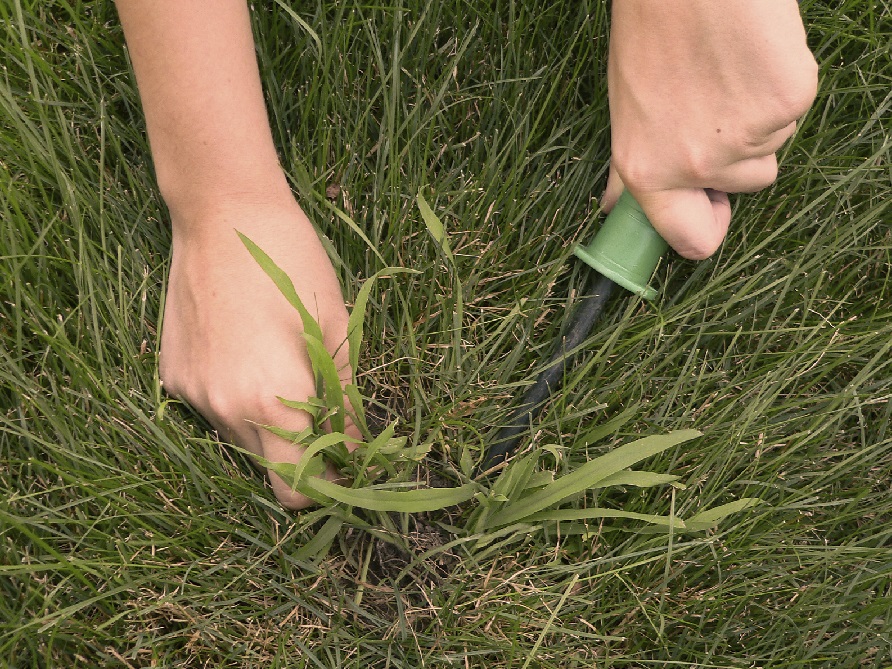Understanding the right time to apply crabgrass preventer in Illinois is crucial for maintaining a healthy and vibrant lawn. Crabgrass is a common weed that thrives in warm weather, and if not managed properly, it can overtake your lawn and garden. In this article, we will explore the best practices for applying crabgrass preventer, the ideal timing, and tips for achieving optimal results in your Illinois lawn care routine.
As a homeowner or gardener in Illinois, knowing when to apply crabgrass preventer can help you avoid common mistakes that lead to weed infestation and lawn damage. This guide will provide you with expert insights, actionable advice, and essential information you need to effectively prevent crabgrass growth in your yard.
With the right knowledge and timing, you can ensure that your lawn remains lush, green, and free from invasive crabgrass. Let's dive into the details of when to apply crabgrass preventer in Illinois and how to achieve the best results for your lawn care.
Table of Contents
- Understanding Crabgrass
- Importance of Prevention
- Best Time to Apply Crabgrass Preventer
- Application Methods
- Weather Considerations
- Lawn Care Tips for Illinois
- Common Mistakes to Avoid
- Conclusion
Understanding Crabgrass
Crabgrass is a summer annual weed that germinates from seeds. It typically thrives in warm temperatures and can quickly spread, leading to unsightly patches in your lawn. Understanding the growth cycle of crabgrass is essential for effective prevention:
- **Germination**: Crabgrass seeds begin to germinate when soil temperatures reach around 55°F.
- **Growth**: Once germinated, crabgrass can grow rapidly, especially in sunny areas.
- **Flowering**: Crabgrass produces flowers and seeds throughout the summer, leading to further infestations.
Importance of Prevention
Preventing crabgrass is crucial for several reasons:
- **Aesthetic Appeal**: A crabgrass-free lawn looks healthier and more appealing.
- **Lawn Health**: Crabgrass competes with desirable grass for nutrients and water, leading to a weakened lawn.
- **Long-term Cost Savings**: Investing in prevention saves money on treatments and repairs in the future.
Best Time to Apply Crabgrass Preventer
The timing of your crabgrass preventer application is critical. In Illinois, the ideal time to apply crabgrass preventer is:
- **Early Spring**: Apply preventer in early spring, typically between mid-March to early April, when soil temperatures reach 55°F.
- **Before Germination**: Make sure to apply the preventer before crabgrass seeds begin to germinate for maximum effectiveness.
It's essential to monitor local weather conditions and soil temperature to pinpoint the precise time for application.
Application Methods
There are several methods for applying crabgrass preventer:
Granular Application
Granular crabgrass preventers are easy to spread using a broadcast spreader. Follow these steps:
- **Choose the Right Product**: Look for a product that contains pre-emergent herbicides.
- **Spread Evenly**: Use a spreader to apply evenly across your lawn.
- **Water Thoroughly**: Water the lawn after application to activate the product.
Liquid Application
Liquid crabgrass preventers can also be effective. Here's how to apply:
- **Dilute According to Instructions**: Follow the manufacturer’s instructions for dilution.
- **Use a Sprayer**: Use a pump sprayer or hose-end sprayer for even coverage.
- **Apply Before Rain**: If possible, apply before expected rain to help the product penetrate the soil.
Weather Considerations
Weather plays a significant role in the effectiveness of crabgrass preventer:
- **Temperature**: Ensure that the application is made when temperatures are mild; avoid applying during extreme heat.
- **Rain**: Light rain after application can help activate the product, but avoid applying just before heavy rainfall.
Lawn Care Tips for Illinois
In addition to applying crabgrass preventer, consider these lawn care tips:
- **Mow Regularly**: Keep your grass at a healthy height to promote growth and discourage weeds.
- **Fertilize**: Use a balanced fertilizer to encourage healthy grass growth.
- **Water Properly**: Water deeply but infrequently to encourage deep root growth.
Common Mistakes to Avoid
When applying crabgrass preventer, avoid these common mistakes:
- **Applying Too Late**: Time your application carefully to ensure it occurs before crabgrass germinates.
- **Skipping Watering**: Always water after application to activate the product.
- **Ignoring Soil Temperature**: Relying solely on calendar dates can lead to ineffective applications.
Conclusion
Applying crabgrass preventer at the right time is essential for maintaining a healthy lawn in Illinois. By understanding the growth cycle of crabgrass, recognizing the ideal timing for application, and following proper lawn care practices, you can effectively manage crabgrass and enjoy a lush, green lawn throughout the growing season. Remember to monitor local conditions and be proactive in your lawn care efforts. If you found this article helpful, consider leaving a comment, sharing it with friends, or exploring more lawn care articles on our site!
By following the guidance provided in this article, you can take control of your lawn care and ensure a beautiful outdoor space for you and your family to enjoy.
Article Recommendations
- Who Is Daniel Daggers Wife A Deep Dive Into Personal Life And Relationships
- How Much Does Gabby Thomas Make A Deep Dive Into Her Earnings Career And Life
- Kai Asakura Rising Star Of Mma And Beyond


